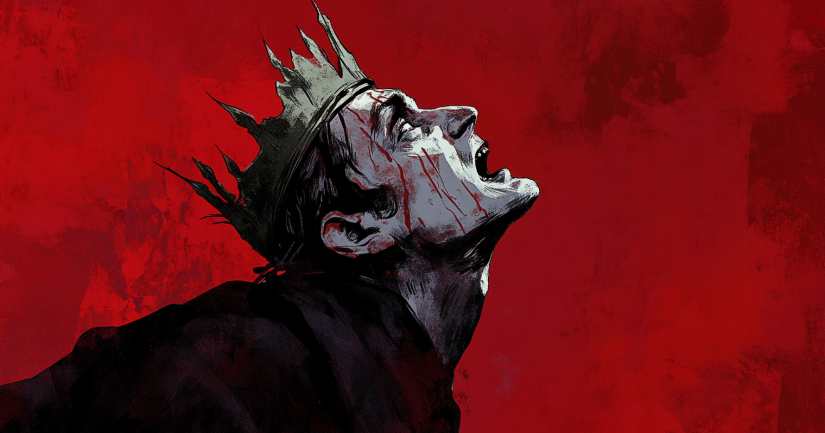
Understanding power, guilt, and prophecy begins with the Macbeth Quote Identification Quiz, where words expose everything characters wish to hide. Shakespeare builds this tragedy not just on action, but on unforgettable lines phrases that echo with moral weight and poetic force. Macbeth’s soliloquies, Lady Macbeth’s invocations, and the witches’ riddles all shape the arc of ambition and ruin. Each quote serves as a signpost: of turning points, psychological shifts, and deepening corruption. The Macbeth Quote Identification Quiz challenges readers to trace these moments back to their speakers, unlocking themes by way of rhythm, word choice, and subtext.
What separates Macbeth from other Shakespearean plays is how much of its moral evolution lives within its language. A single line “Sleep no more,” “Out, out, brief candle,” or “Unsex me here” can signal a complete transformation in character or tone. These quotations don’t merely narrate events; they comment on them, justify them, and ultimately unravel the souls who speak them. The Macbeth Quote Identification Quiz encourages close reading, careful listening, and a keen appreciation for how Shakespeare compresses character, conflict, and prophecy into breathtaking bursts of poetry.
Can you match the most famous lines to the correct character? If you love breaking down Macbeth‘s structure, test your timeline knowledge in the Macbeth Order of Events Quiz. Want to analyze Shakespeare’s writing even further? Explore the Macbeth Literary Devices Quiz. And if you’re confident you’ve mastered the entire play, take on the Macbeth Full Book Quiz.
Begin Testing Macbeth Quote Identification Quiz
Macbeth’s Soliloquies and the Language of Inner Collapse
Few characters in English literature speak with such raw introspection as Macbeth. His soliloquies evolve from wonder to torment, shaped by fear and fragmented logic. Lines such as “Is this a dagger which I see before me?” or “Tomorrow, and tomorrow, and tomorrow” reveal a man losing control of both reality and meaning.
Each soliloquy marks a stage of psychological decay. At first, he questions; later, he resigns. The Macbeth Quote Identification Quiz explores how these private moments map his descent from contemplation into chaos, with every quote etched in moral ambiguity.
Lady Macbeth’s Eloquence and Tragic Unraveling
Lady Macbeth uses language as a weapon. In Act 1, her speeches burn with ambition: “Look like the innocent flower,” she urges, “but be the serpent under’t.” Her metaphors are bold, her imperatives sharp. She dominates Macbeth through language more than logic, shaping the murder before a dagger is ever drawn.
Yet her most haunting lines come later delirious, broken, half-formed: “Out, damned spot!” and “What’s done cannot be undone.” The Macbeth Quote Identification Quiz reveals the shift from rhetorical mastery to fragmented guilt, showing how Shakespeare collapses identity through syntax and tone.
The Witches and Their Riddled Prophecies
No quotes in Macbeth carry as much cultural permanence as those spoken by the witches. Their language is rhythmic, hypnotic, and eerily playful. “Double, double toil and trouble” might seem like nonsense until the chaos they predict unfolds line by line.
Shakespeare arms them with ambiguity. Their quotes promise power, but never truth. The Macbeth Quote Identification Quiz considers how these riddles lure characters forward, serving prophecy without clarity, and language without certainty.
Banquo, Macduff, and the Voices of Reason
Banquo’s words carry foresight. His response to the witches “And oftentimes, to win us to our harm…” warns of treachery disguised as fate. He suspects early, yet remains passive. His quotes reflect reason but not resistance.
Macduff, by contrast, speaks with grief and fire. His anguished cry, “All my pretty ones?” after learning of his family’s slaughter, stands among Shakespeare’s most human lines. The Macbeth Quote Identification Quiz draws attention to these characters who speak less often, but with unmatched emotional clarity.
Fun Facts About Quotation Legacy and Global Recognition
- “Out, out, brief candle” inspired Robert Frost’s poem Out, Out and countless modern titles
- Macbeth’s quotes are more widely taught than any other Shakespearean character besides Hamlet
- The witches’ “fair is foul” phrase appears in dozens of films, songs, and book titles
- Winston Churchill quoted Macbeth’s lines in Parliament during World War II
- Lady Macbeth’s “screw your courage to the sticking-place” has been used in motivational speeches and sports coaching
Why Quotes Reveal Macbeth’s Soul More Than Plot Ever Could
In Macbeth, characters often lie through action but reveal themselves through speech. Their words betray their fears, showcase their motives, and often predict their own doom. Shakespeare allows no character to hide behind silence for long. Everyone must speak and by doing so, be known.
The Macbeth Quote Identification Quiz sharpens literary instincts by asking readers to go beyond memory. Recognizing a quote means understanding its speaker, intention, and consequence. Through these lines, the tragedy becomes personal alive in every syllable, echoing with meaning long after the stage falls dark.
Macbeth Quizzes – Can you handle the blood and betrayal?
Macbeth Quotes – FAQ
Lady Macbeth says this in Act 5, Scene 1, during her sleepwalking scene. It shows her deep guilt and mental breakdown. Haunted by the murders she’s involved in, she tries to wash away imaginary bloodstains, symbolizing her inability to escape the consequences of her actions.
In Act 2, Scene 1, Macbeth hallucinates a dagger leading him to Duncan’s chamber, reflecting his inner turmoil and hesitance about committing murder. The dagger symbolizes his ambition and moral conflict, indicating his weakening grip on reality as he succumbs to darker impulses.
Macbeth says this in Act 5, Scene 5, upon hearing of Lady Macbeth’s death. It expresses his view of life as fleeting and meaningless, comparing it to a shadow or an actor on stage. This shows his despair and disillusionment after losing everything he valued.
Spoken by the second witch in Act 4, Scene 1 as Macbeth approaches, it highlights his transformation from a noble warrior to someone even the witches see as wicked. It underscores his descent into tyranny and the fulfillment of the witches’ prophecies.
